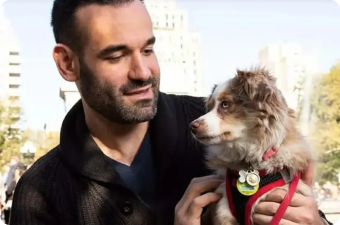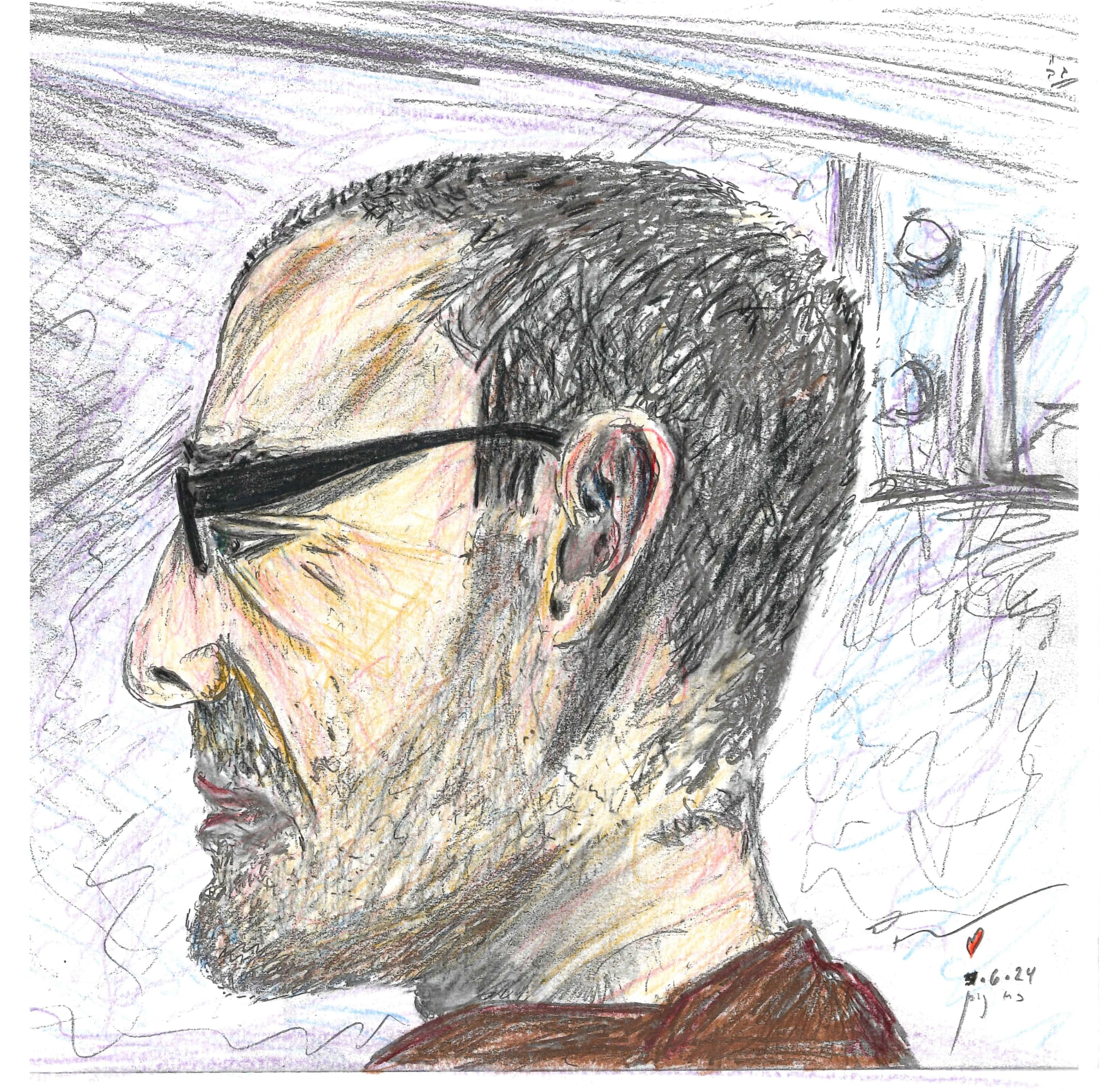This week we begin reading VaYikra (Leviticus), the Torah’s central book literally (3 of 5) and ethically. The sages say children should begin their learning not with Bereshit (Genesis, “In the beginning…”) but VaYikra, saying “Let the pure come and study purity” [1]. Rabbi Akiva says the core of Judaism is found in it, “You shall love your neighbor as yourself.” (Lev 19:18)[2] Yet ViYikra is difficult at face value – especially by “modern” standards, because it appears to be a cold list of strict laws and rituals, largely about sacrifice. There are graphic depictions of slaughtering animals and smearing blood on the altar. There are lists of sins and frightening curses. It is often mistaken for a “checkbox” religious litany, where if you check this box, good happens, and that box, bad.
As with all Torah, we will learn that what seems emotionless and routine is really an exercise in unity and love.
Three quick thoughts: 1. SACRIFICE There is a debate between RaMBaM and RaMBaN as to the nature of sacrifice in Judaism. Rambam says it’s G-
d’s answer to human nature, a way to wean us off ancient idolatry (Guide to Perplexed,111:32). He explains G-d could not alter human nature to remove the urge, as that would deny free will. Ramban and other commentators strongly disagree that sacrifices were a temporary fix, noting we pray for sacrifices to be restored.
All, however, agree, sacrifices served to restore mindfulness & gratitude for G-d, “cleansing” and elevating our souls.
It is for this reason, Rabbi Sacks teaches, that despite losing its Temple and altar – even its political sovereignty –
Judaism did not lose itself as other faiths did. Instead our prophets and sages emphasized that we atone and elevate through means that parallel and even usurp sacrifice: When R. Yehoshua wondered how we could atone after losing the Temple, R. Yohanan b Zakkai comforted him, “My son, we have another atonement as effective as this: Acts of kindness. As it is written [Hosea 6:6:], ‘I desire kindness and not sacrifice.” (Avot DeRabbi Natan 8) [3] Throughout the Talmud, Midrash, and Liturgy, we are reminded: “He who prays … is as if he brought a pure oblation.” (Y. Berachot 8d) “If a person repents, it is accounted to him as if he had gone up to Jerusalem, built the Temple, the altar, and offered on it all sacrifices ordained in the Torah.” (Leviticus Rabba 7:2) “As long as the Temple stood, the altar atoned for Israel, but now a person’s table [hospitality] atones for him.” (Berachot 55a)
(We use salt with Shabbat meals to remember the salt used on the altar.) Every Jewish New Year, Jews of all backgrounds proclaim, “Repentance, prayer, and charity tear the [negative] decree.”
So what is Jewish “sacrifice” that meditation, contrition, and generosity can replace it?
First, sacrifice was not for willful sins. Willful violations require “Teshuva”, repentance, and no amount of sacrifice can atone for them. G-d does not accept “bribes” (Deut 10:17). Rambam explains we repent with three steps: (1)
contrition, (2) confession, (3) commitment to not repeat the act. [4] In this light, we understand why Rambam stresses that G-d could not just change human nature to remove our urge to sacrifice: G-d wants us to “do the work” to overcome & elevate our savage urges. That also means becoming mindful, human, rather than acting on thoughtless instinct.
“Sin offerings”, Rabbi Sacks teaches, are for accidental sins, where we *forget* a law or that it’s a holiday.
Negligence is descent into our automatic, animal nature, so a “Sin offering” reminds us of our G-dly nature – that we are *above* animals.
The Torah is clearly a guidebook on mindfulness and gratitude for G-d. We say blessings to elevate even mundane acts of survival (eating, drinking, & even using the bathroom) into exercises of mindfulness. When you say a blessing, you are not merely drinking tea, you are experiencing G-d.
The laws of Sacrifices, Rabbi Sacks continues, and even the Tabernacle (Mishkan), are not highlighted in the Torah until after the Golden Calf, when Jews feared they lost Moses and “created” another way to connect with G-d. The Calf was intended as an oracle, a conduit – not an alternative to G-d, but to Moses. Following the Golden Calf, Moses pleads with G-d to stay “close” to the Jewish people, to be accessible, and we are given the Mishkan, its sacrifices, and are introduced to the word, “Shekina”, where G-d dwells among us. “Shekin” means “Neighbor.”
Just as G-d self-constrained Himself (“Tzimtzum”) to “make space” for humanity to exist within His infiniteness, we give up something of ourselves for Him to exist within us.
Sacrifices, and – more ideally – acts of kindness, charity, repentance, study, and prayer, are ways we make space for Him.
This view of sacrifice is unique to Judaism. Ancients looked at sacrifice not as gratitude, but as means to appease moody gods – to keep them away, pay for a service, or “feed” them. Vulnerable people and animals were killed so that others would not be prey. Rabbi Sacks quotes historians who suggests this urge may have developed from early man’s experience being hunted by predators – the weakest had to go so the rest of the tribe would live. At times, a hero emerged and risked himself to save the tribe. Such behavior is often called “sacrifice”, too.
However, concurrently, man became the apex predator.
This is not Judaism’s ideal, which reveres every life as sacred and worthy of saving. For Judaism, Sacrifice is not about taking away from any person. It is about elevating them.
2. SENSITIVITY (THE WORLD IS A MIRROR)
The word YaYikra, “And He called”, is the language of love, beckoning, Rabbi Sacks explains. G-d called Moses to Him, just as, throughout life, we are called by our soul, that part of G-d inside each of us, to take action, adopt a role, create, repair, or elevate someone or something. Heeding the call is our mission, doing the work is our sacrifice.
A few nights ago, a young man told me a story that cannot come with enough “trigger warnings”. At age 4, his 16-
year-old neighbor extorted him into sexually abusive activities, dangling turns on his game console in exchange for increasingly horrifying acts. This child felt something was deeply wrong, but he was 4 – he lacked the skill & strength to say no and the ability to walk away. At 8, another babysitter showed him porn, demonstrated acts on him, and had sex with various boyfriends in front of him. At 14, his 24-year old former teacher, lured him into losing his virginity.
“It was a mutual mistake,” this young man, now just 26, said, “I do not want to bring trouble on him.”
“No, it wasn’t. You were 14. He was your teacher.”
“I guess. He was in a position of authority,” he says as his face, shoulders, and tone sink in realization.
At 24, men much older who’d lured him when he was 15, sent him porn of minors being abused as he’d been.
Desperate to appease and “get close to” his abusers – also abuse victims – he discussed and volleyed these videos between them and their boyfriends. Per his charges, he never sought or produced videos (“production”), nor sought to engage or meet minors (“enticement”). All his relationships have been men 10+ years his senior.
It is clear he was (is) suffering a form of PTSD, “replay and rewind disease”, where the brain cannot stop replaying & reliving a trauma, seeking to understand and transpose it so the world does not feel so random and cruel. (The Rambam explains this is the meaning of “BaKeri” (“chance”) & the curses in Leviticus: View life as difficult at times for all.)
He was a ripe target. At a young age he knew he was gay, before knowing the word. Family & friends would make comments. He learned to hide & silence himself, making him even more vulnerable. “Abusers don’t go after the talkers,” is a cliche joke with truth.
He also began, and continues, to escape into fantasy worlds, novels & stories about magical, immortal powerful creatures. Who would not dream to escape the world of his childhood?
His parents, he explained, “Were from a different culture,” Cuban immigrants who barely spoke English and never taught him about avoiding or reporting abuse. “These things weren’t discussed there.”
Even after the FBI showed up at their home to arrest him at 5am, even after being sentenced to more than a decade in prison, he still has not told his parents the extent of his abuse. I sense he has not told me, either, and may not grasp it himself.
It was one of those men who’d lured him at 15 who was arrested by the FBI and reported him and other men to lower his own sentence. This young man took a plea and, at 26, will spend the next 12.5 years in Federal Prison baring any mercy from the judge or adjustments in law.
The trading of child porn is horrifying & unacceptable, no exception.
Equally true: We failed this young man horribly throughout his childhood.
Where were we, as a society, to help catch & stop the abuse at 4? 8? 14? 24?
He and I discussed my essay on “Reuven’s voice,” where we cannot voice the words our soul is crying to utter, to stop an injustice, to shout a boundary into awareness. Perhaps he opened up to me because I confessed my failure to stop an abortion, my failure to protect my own child and the woman I loved who was carrying him or her.
When children are too young to have a voice, where is ours?
When this boy had been abused, taunted, questioned, and groomed into a horrifying world, suffering in silence and shame, where was our call to remind him of his holiness? Our help & guidance to find and express his voice?
We did not reach out to him, not in the way he needed. There was no “VaYikra”, no beckoning that he felt loving and safe enough to answer.
There are so many hurting children, men, and women we are failing to call – and thus failing to stop the “cycle” of abuse.
This is not limited to sexual abuse.
BOP (Federal Prisons) Director Colette Peters bravely confessed to the Senate Judiciary Committee recently that 1-in-3 employees suffers from PTSD. This is shocking – until you live with them 24/7. Then it is obvious, and 1-in-
3 likely an underestimate. Many are former military, but I suspect given the emotional outpouring the SIS and other officers speak about “ChoMos” (child molesters), their pain comes from a much earlier experience than Iraq or Afghanistan.
From a spiritual and psychological perspective (increasingly the same thing), this is no surprise. The world is a mirror, “As above, so below”, “As within, so without”, and we know hurt people are drawn to hurt people. Some employees come to “rewind and replay” their trauma, others to “punish” or “fight” it.
But this is the wrong kind of “sacrifice”. It is slaughtering the weak.
And it doesn’t work: Many staff are hurting viscerally. Some compartmentalize, others bully. Far more than 1-in-3 seethe. We must help them, too.
3. SANCTUARY To be clear, the Torah is a book of laws & boundaries, not mere platitudes. Love, Rabbi Sacks reminds us, requires boundaries. We cannot allow cycles of abuse to continue, nor free abusers just because they were victims. We are responsible for our actions.
But this does not absolve us of responsibility to create dignified, humane alternatives to incarceration. With faith that G-d created cures before every disease, we must work to help these people heal, and provide “Sanctuary” to exit victimhood – so they do not create more victims!
In Portugal, they decriminalized drug use when a person comes forward for help. Rather than cage them, they are helped to overcome. Norway, too, is famous for limiting sentences, focusing on healing, and returning all to society. Major progress is being made in trauma therapy with psychadelics. As Purim reminds, G-d appears hidden until we make space for Him.
Pouring hurt on hurt is not the answer. We *are* our brothers keepers & must beckon them with love to heal.
“One who shows no pity for fellow creatures is assuredly not the seed of Abraham, our father.” (Talmud Betza 32a)
R Zutra quotes Rav, that G-d prays! “May it be My will that My mercy overcome My anger, My loving qualities override My strict traits, I treat My children with the quality of mercy, and always deal with them beyond the letter of the Law.” (Brachot 7a)
To be G-dly we must put mercy over anger, kindness over pain. We must overcome our instinct for vengeance.
We must “desire kindness, not sacrifice.”
Shabbat Shalom. Easy Fast. Happy Purim.
With love, Ari ~ Group message. Draft 1.0. You may share.
~ [1] R Sacks: Covenant & Conversation: Leviticus, P.3 (Many ideas from here.)
[2] Nedarim 9:4; R Telushkin:Jewish Wisdom (Ditto)
[3] R Sacks:121 [4] Rambam Hil Teshuva 2:2


